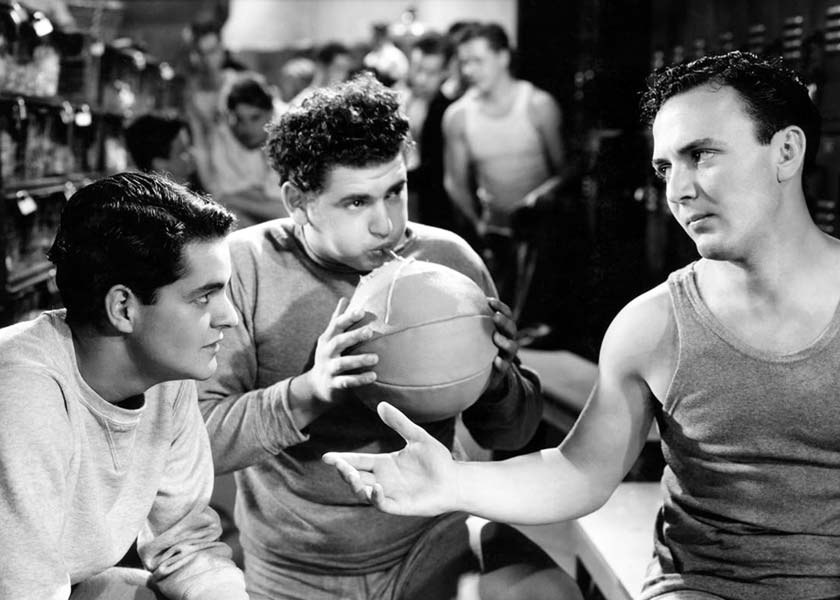Synopsis
The gang run by Louis Garrett (Charles Bickford) offers “protection” to local merchants. Those foolish enough to decline his services end up having their businesses bombed. Further resistance may have fatal results. Garrett’s smart lawyers and connections to powerful figures in the community make him immune to the normal course of justice.
Outraged at the assassinations of a local Jewish tailor and one of their classmates, a group of high school students, led by Steve Smith (Richard Cromwell) and Don Merrick (Eddie Nugent), decides to take the law into its own hands. Using Gay Merrick (Judith Allen) as bait to lure bodyguard Toledo (Bradley Page) away from his boss Garrett, they kidnap the latter and take him to a deserted building. There he is confronted by the collective student population of the town’s high schools, assembled to see that justice is done. Garrett remains defiant until, securely bound, he is slowly lowered into a pit filled with starving rats. Those high school kids mean business! The gangster finally looses his nerve and confesses to his crimes.
The kids proceed to hoist him on their shoulders and march to the office of local judge Michael Maguire (George Barbier). There Garrett is forced to sign a confession in the presence of the judge, thus putting an end to the reign of crime in their community!
Discussion
This Day and Age was criticized at the time of its release for its appeal to mob justice and vigilantism, but the reactionary DeMille clearly felt comfortable promoting these activities. Despite its hysteria and legal absurdities, This Day and Age is a well-made film that moves and is never boring.
Remarkably, perhaps, several African-Americans are visible among the throng of white students. Racial integration of any kind is not often encountered in films of this era. Ring-leader Cromwell even recruits one of his Black schoolmates to assist in the plot to kidnap Bickford.
There are a number of good performances among the supporting cast that help make up for the blandness of the high school kids. Charles Bickford was always a strong actor whether playing a good guy or a villain.
Bradley Page is perfect as the snarling, pencil-mustachioed bodyguard, delivering some of his lines with just a touch of tongue-in-cheek bravado. Near the end a scene occurs in which Page attempts to seduce terrified teenager Judith Allen. But when Allen indicates that she is a virgin, Page looses interest and, leaving the room, utters one of the greatest lines to be heard in any Pre-Code movie: “I like my olives green, but I don’t pick ‘em myself. Go on home, kid.”
George Barbier shines as the pompous, ineffectual judge and Charles Middleton, the future Ming the Merciless, is surprisingly cast as a sympathetic district attorney. Other familiar faces in the film include those of Donald “Red” Barry, Billy Gilbert, Edwin Maxwell, David Sharpe, and Toby Wing.
Cinematographer J. Peverell Marley (1901-1964) was a DeMille favorite, having previously lensed The Ten Commandments (1924), The Golden Bed (1925), The Road To Yesterday (1925), The Volga Boatman (1926), The King Of Kings (1927), The Godless Girl (1928), and Dynamite (1929) for the Master. This Day and Age contains one remarkable visual: a scene shot from the perspective of the bottom of a grave, with the heads of the mourners looking down on the casket. The scene ends with the audience receiving a shovelful of dirt in the face, courtesy of the gravedigger!
This Day and Age was the last social problem film made by DeMille; most of his subsequent efforts were epics of one sort or another, mostly dreary and plodding but also popular and, more importantly, lucrative. Although his unwarranted reputation as a “Great Film Maker” rests mostly on these elephantine epics, This Day and Age shows that DeMille was a pretty good director when he made the effort.

